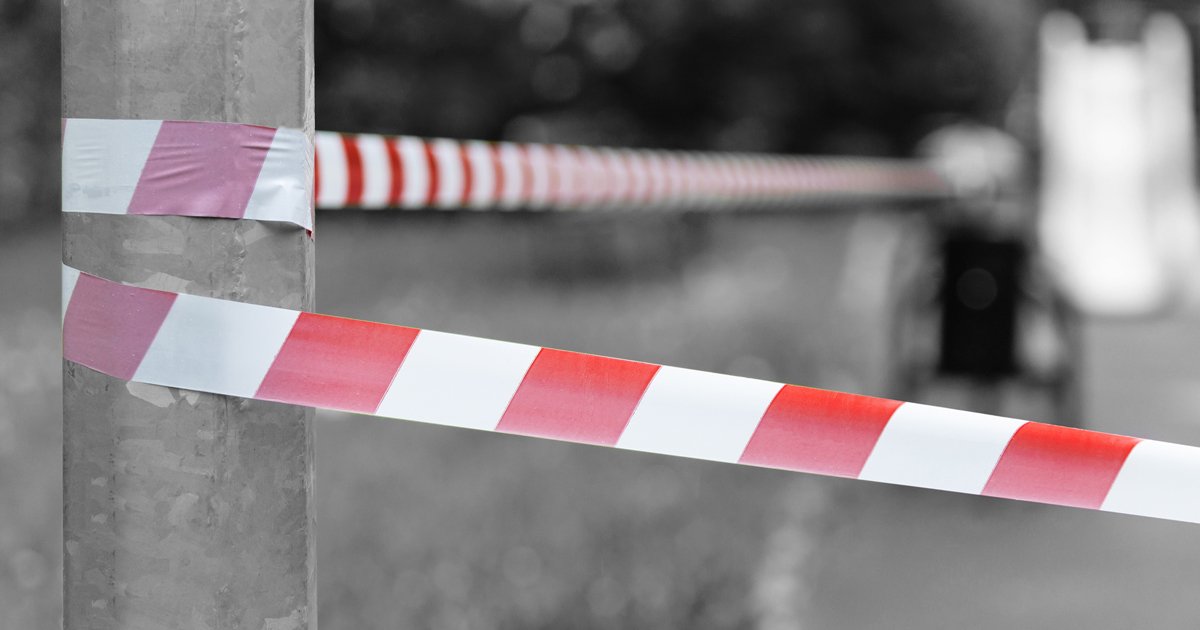Trade secret litigants in California are well versed in the general requirements of Code of Civil Procedure Section 2019.210, as it imposes a unique sequencing to the order of discovery. In a non-trade secrets case, the plaintiff may (with few exceptions) commence discovery 10 days after service of the summons and complaint while the defendant can serve discovery at any time. Cal. Code Civ. Proc. §§ 2030.020, 2031.020, 2033.020. In a trade secret case, however, this general rule does not apply. The Section provides (with emphasis added):
“In any action alleging the misappropriation of a trade secret under the Uniform Trade Secrets Act . . . , before commencing discovery relating to the trade secret, the party alleging the misappropriation shall identify the trade secret with reasonable particularity . . . .”
While California courts have provided substantial guidance on what it means to identify a trade secret with “reasonable particularity,”[1] few published decisions have addressed the issue of what constitutes “discovery relating to the trade secret.” Does it mean discovery related solely to the trade secret cause of action? Does it mean discovery related solely to those trade secrets that the Court first determines have been identified with reasonable particularity? Does Section 2019.210 “discovery relating to the trade secret” extend to other causes of action – including breach of contract – that might “relate to” the trade secret claim? And what if the same body of discovery that “relat[es] to the trade secret” also relates to the defendant’s cross-claims or one or more non-trade secret causes of action asserted by the plaintiff? While the letter of the law is not crystal clear, the Court’s holding in Advanced Modular Sputtering, Inc. v. Super. Ct., 132 Cal. App. 4th 826 (2005) (“Advanced Modular”) provides some critical guidance.
Advanced Modular
In a case of first impression, the Court in Advanced Modular considered whether the reach of Section 2019.210 extended beyond the asserted trade secret claim to prohibit discovery on “any cause of action that relates to the trade secret.”
In Advanced Modular, the plaintiff argued that it should have been permitted to commence discovery on its nine non-trade secret causes of action – which included contract, tort and equitable claims – before identifying its trade secrets with particularity. Id. at 834-35. The court rejected the plaintiff’s argument because it ruled a “fair reading” of the complaint “compels the conclusion that each and every cause of action hinges upon the factual allegation that [defendant] misappropriated [plaintiff’s] trade secrets.” Id. at 834 (emphasis added). For example, the only alleged basis for the plaintiff’s breach of contract claim was that the defendants had breached their confidentiality agreements by “disclosing the trade secrets.” Id. The contract claim alleges no other breach. Id. Similarly, every other cause of action “incorporate[d] and depend[ed] upon the foundational allegation that petitioners ha[d] misappropriated . . . trade secrets.” Id. at 831; see also id. at 834. Based on its express finding that every cause of action was “factually dependent on the misappropriation allegation,” the court ruled that discovery could commence only after the allegedly misappropriated trade secrets had been identified with reasonable particularity. Id. at 834-35 (emphasis added).
Thus, Advanced Modular stands for the proposition that a cause of action must “hinge[] upon” or be “factually dependent on” the trade secret allegation in order for the Section 2019.210 discovery stay to extend to that cause of action. That guidance, however, does not go far enough. In fact, in Advanced Modular the Court readily recognized the limited reach of its holding, noting: “[w]hile we can envision an ‘action’ alleging misappropriation in some causes of action but not in others, the instant ‘action’ is not one of them.” Id. at 834. California appellate courts have yet to consider three related issues: (1) whether and to what extent discovery should proceed when one or more of the causes of action do not “hinge upon” or “factually depend on” the trade secret claims; (2) whether the plaintiff may proceed with discovery as to the trade secrets that it has adequately disclosed; and (3) to what extent a plaintiff may obtain discovery that relates both to an alleged trade secret (that has yet to be identified with particularity) and another cause of action or defense. Though not controlling, several federal district courts have considered these issues with differing results.
District Court Cases Interpreting Scope of Discovery “Relating to” the Trade Secret
The court in Loop AI Labs Inc. v. Gatti, No. 15-cv-00798-HSG (DMR), 2015 WL 9269758, at *4 (N.D. Cal. Dec. 21, 2015) considered – and denied – the defendant’s motion to stay all discovery in the case until plaintiff complied with Section 2019.210. The court reasoned that “Section 2019.210 only supports a stay of ‘discovery relating to the trade secret[s].’” Id. at *4. Since only one of the plaintiff’s seventeen claims (a CUTSA claim) alleged misappropriation of trade secrets, the plaintiff was allowed to proceed with discovery on its remaining claims, which included claims for fraud, intentional interference with prospective economic advantage, tortious interference, unfair competition, unjust enrichment, and conversion. Id.
Although the plaintiff had not identified all of its purported trade secrets with particularity, the court in Quintara Biosciences, Inc. v. Ruifeng Biztech Inc., No. cv-20-04808 WHA, 2021 WL 965349, at *4 (N.D. Cal. March 13, 2021), allowed the plaintiff to proceed with discovery relating to the several trade secrets it had adequately disclosed. Notably, the Ninth Circuit suggested that once a trade secret has been defined with some particularity, “discovery provides an iterative process where requests between parties lead to a refined and sufficiently particularized trade secret identification.” InteliClear, LLC v. ETC Global Holdings, Inc., 978 F.3d 653, 662 (2020).
In M/A-COM Technology Solutions, Inc. v. Litrinium, Inc., No. 19-cv-00220-JVS (JDEx), 2019 WL 428523 at *5 (C.D. Cal. June 11, 2019), the Court considered whether the plaintiff should be permitted to proceed with the discovery that bears upon issues of both trade secret and non-trade secret issues before it had made satisfactory Section 2019.210 disclosures. The court refused the plaintiff's request, reasoning that Section 2019.210 “does not limit discovery ‘exclusively’ relating to the trade secrets.” In the M/A-COM court’s view, a “request that relates to both trade secret and other issues still ‘relates to’ the trade secret.” Id. at *5. Because the court concluded that all of the discovery requests in issue “relate[d] to” the trade secrets, the defendant did not have to respond to any of the requests until the plaintiff complied with Section 2019.210.
Finally, in Masimo Corp. v. Apple Inc., No. 18-cv-20-48 JVS (JDEx), 2020 WL 5215308 at *1-2 (C.D. Cal. July 14, 2020), the District Court considered whether the discovery magistrate erred in ordering the defendant to respond to dual-purpose discovery with both patent and trade secret aspects when the Scheduling Order had stayed “trade secret discovery only pending compliance with [Section] 2019.210.” See also Masimo Corp. v. Apple Inc., No. 18-cv-20-48 JVS (JDEx), 2020 WL 5223558 at *1. Defendant Apple argued that allowing Plaintiff to take discovery “merely by claiming that [it] relates to another claim, like [] patent infringement” effectively eviscerates the requirements of Section 2019.210. Id. at 2. The court rejected Apple’s argument finding instead that the court was well within its rights to allow patent discovery to proceed before the plaintiff had fully complied with Section 2019.210 because “plaintiffs’ patent claims are separate from the trade secret claims.” Id. at 3. See also Philips North America LLC v. Advanced Imaging Services, No. 2:21-cv-00876 JAM AC at * 7 (E.D. Cal. Aug. 6, 2021) (allowing certain discovery to proceed where it was “independent of plaintiff’s trade secret claims”).
***
Given the frequency with which this issue arises in any trade secret case, practitioners should expect further guidance from both state and federal district courts.
Please contact Alto Litigation partners Bryan Ketroser (bryan@altolit.com) or Bahram Seyedin-Noor (bahram@altolit.com) if you require counseling on a trade secret litigation matter.
****
Disclaimer: Materials on this website are for informational purposes only and do not constitute legal advice. Transmission of materials and information on this website is not intended to create, and their receipt does not constitute, an attorney-client relationship. Although you may send us email or call us, we cannot represent you until we have determined that doing so will not create a conflict of interests. Accordingly, if you choose to communicate with us in connection with a matter in which we do not already represent you, you should not send us confidential or sensitive information, because such communication will not be treated as privileged or confidential. We can only serve as your attorney if both you and we agree, in writing, that we will do so.
The materials on this website are not intended to constitute advertising or solicitation. However, portions of this website may be considered attorney advertising in some states.
Unless otherwise specified, the attorneys listed on this website are admitted to practice in the State of California.
[1] See e.g., Advanced Modular Sputtering, Inc. v. Superior Court, 132 Cal. App. 4th 826, 835-36 (2005); Alta Devices, Inc. v. LG Electronics., Inc., No. 18-cv-00404-LHK-VKD, 2019 WL 176261, at *1–2 (N.D. Cal. Jan. 10, 2019).




















